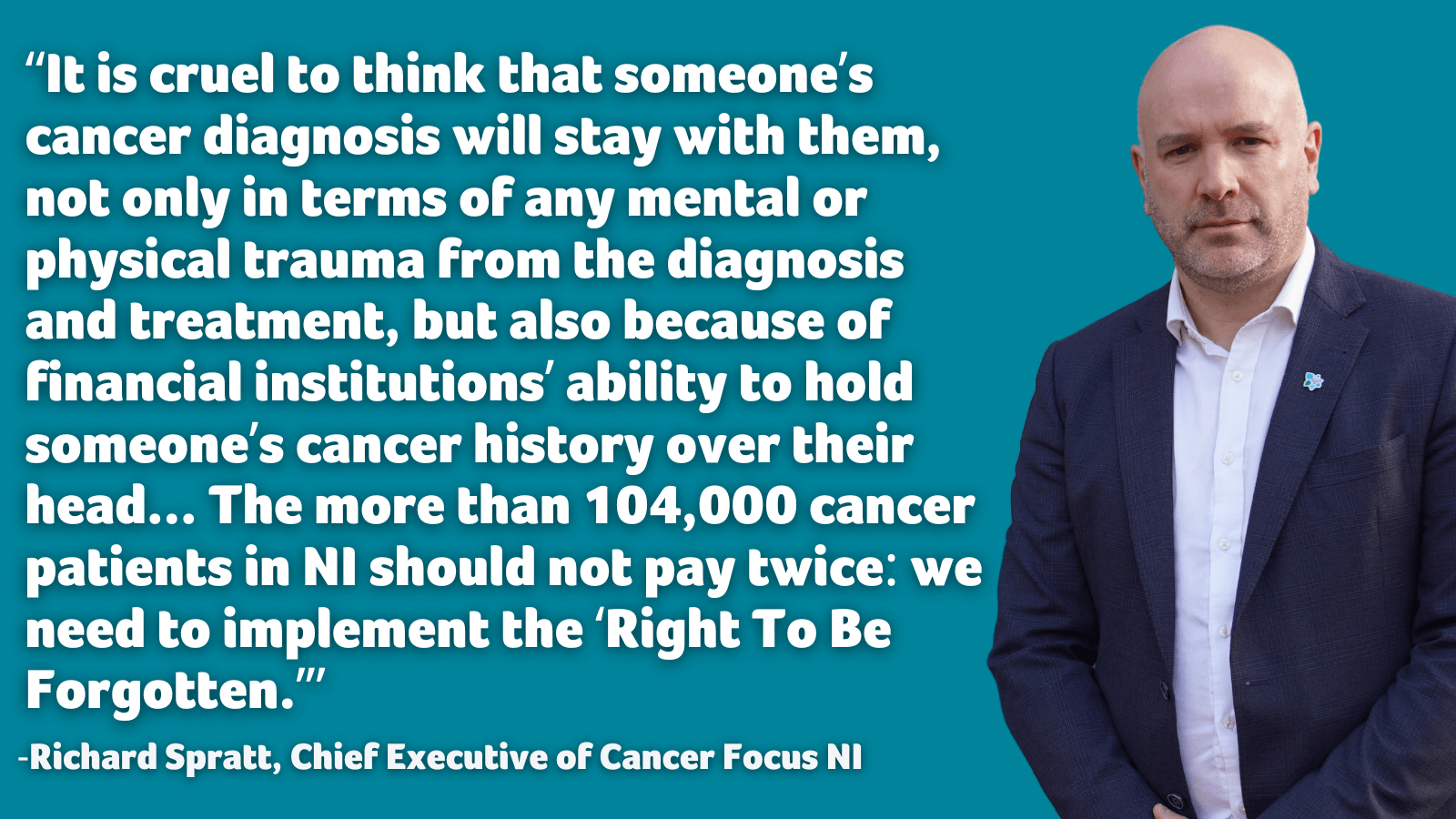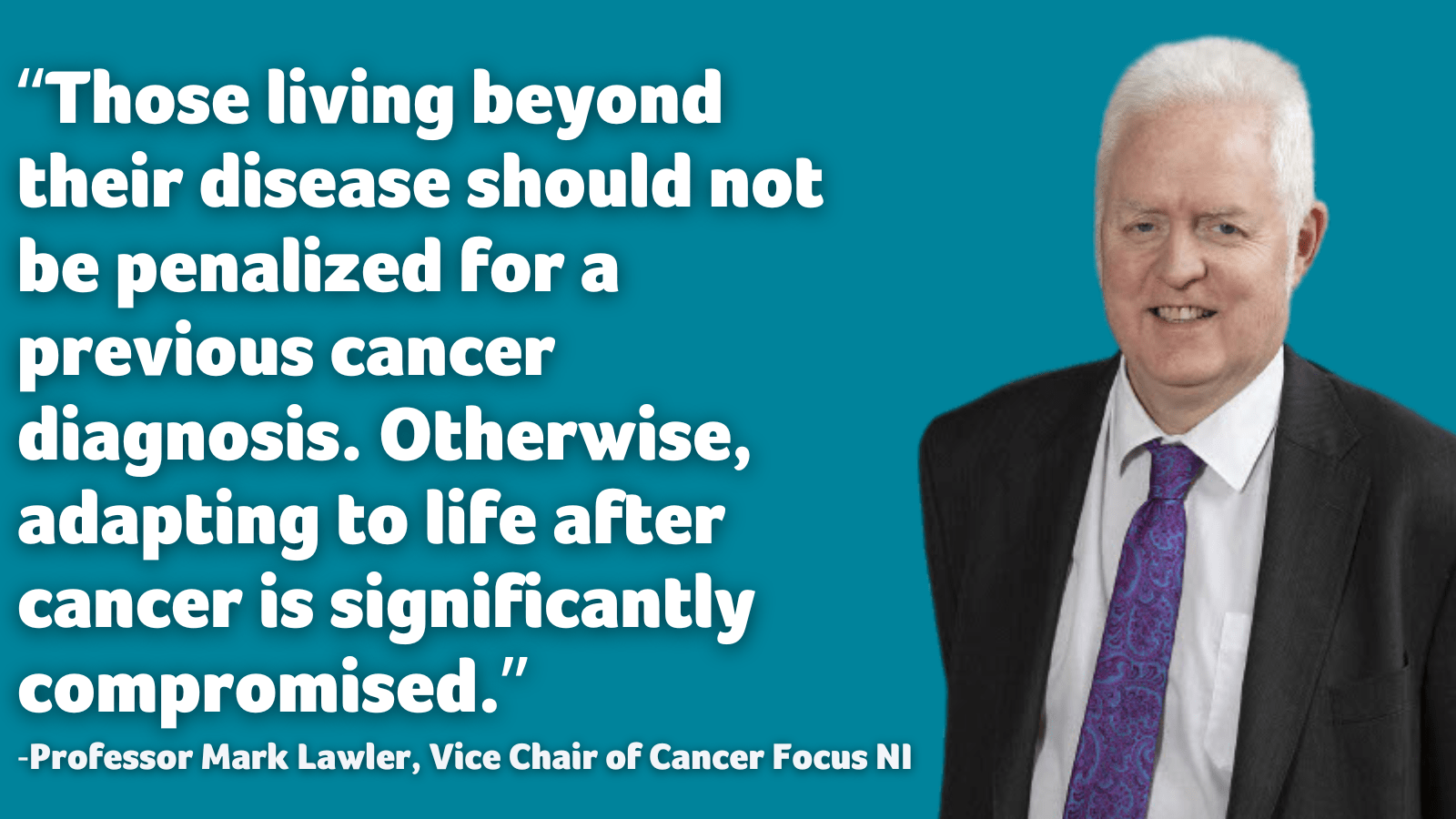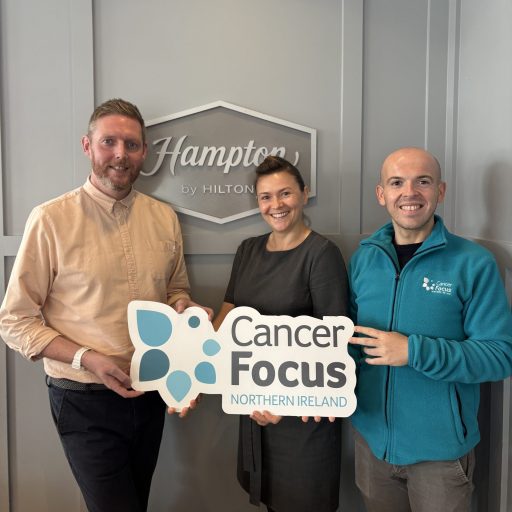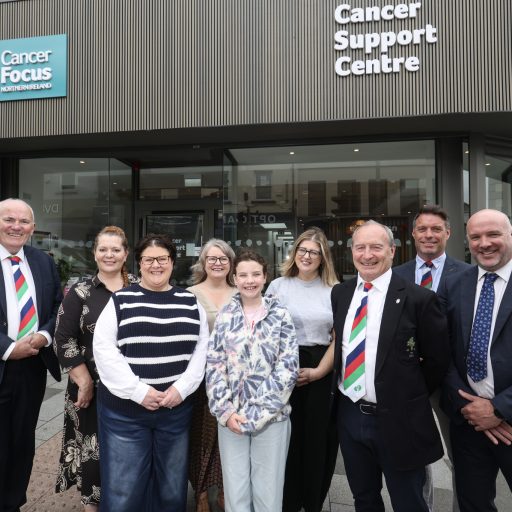
Cancer Focus NI joins the call for the ‘Right To Be Forgotten’ to end long-term financial discrimination against people living with cancer
A new study published today by Lancet Oncology, one of the world’s leading cancer journals, highlights that cancer survivors are often subject to repeated discrimination from financial institutions when trying to access loans, mortgages, health and travel insurance, and other financial packages. This discrimination is projected to affect cancer survivors across Europe, including the more than 100,000 people living with cancer here in Northern Ireland.
The research was led by Cancer Focus NI’s Vice Chair, Professor Mark Lawler, who is looking to collect evidence for and then end the financial toxicity faced by cancer survivors. The work calls for the “Right To Be Forgotten,” which would protect long-term cancer survivors from having to disclose their cancer history and therefore help prevent this discrimination.
Endorsing this research and the ‘Right To Be Forgotten’, Richard Spratt, the Chief Executive of Cancer Focus Northern Ireland, comments:
“We applaud the work the Vice Chair of our Board, Professor Mark Lawler, is doing to advocate for a ‘Right To Be Forgotten’ for cancer patients. A cancer diagnosis is one of the most devastating moments anyone can experience, and the cancer journey can be relentless, with extreme physical and mental consequences for months to years on-end. Cancer survivors should not be punished for one of the worst things that has ever happened to them, especially when the majority of cancer diagnoses are beyond anyone’s control. It is cruel to think that someone’s diagnosis will stay with them, not only in terms of any mental or physical trauma from the diagnosis and treatment, but also because of financial institutions’ ability to hold someone’s cancer history over their head, seemingly for the rest of their lives.
“This insightful work raises the profile on discrimination faced by cancer survivors with regards to financial packages, including loans, mortgages, and insurance, including for health and travel. Implementing the ‘Right To Be Forgotten’ into legislation offers a solution to this unjust and unsympathetic practice: it would prohibit financial institutions from asking about or factoring in applicants’ medical history from 5 years after an applicant had been declared ‘cancer-free.’ Here in Northern Ireland, there are over 104,000 people living with cancer, and with one in two of us projected to face a cancer diagnosis in our lifetimes, cancer will likely affect all of us at one moment or other. Cancer patients should not pay twice: as a minimum first step, we need to implement the ‘Right To Be Forgotten’ in NI.”
Professor Mark Lawler, the lead researcher and the Vice Chair of the Cancer Focus NI Board, adds:
“Protecting cancer survivors from financial discrimination is absolutely crucial. When a cancer professional states that you are cured and international benchmarking agrees, then what authority do financial institutions have to say that you are not? Those living beyond their disease should not be penalized for a previous cancer diagnosis. Otherwise, adapting to life after cancer is significantly compromised. The current cost-of-living crisis is hard for everyone, but so much worse for people previously affected by cancer. We must not make cancer patients pay twice. The Right To Be Forgotten must be enshrined in law across Europe and here in Northern Ireland as a matter of urgency.”
For more information on this discrimination and the ‘Right To Be Forgotten’, read the essay in Lancet Oncology here.









